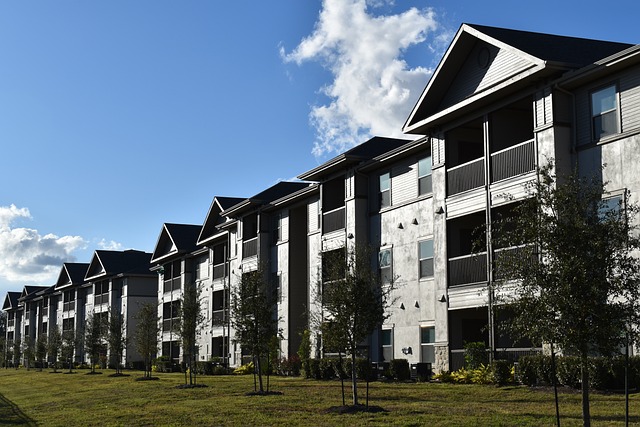
Nonprofit Security Grant Program: Bipartisan Push to Unfreeze It
04.03.2025 | Linda J. Rosenthal, JD

It was the busiest year in over a decade for California state lawmakers.
Among the wide variety of bills making it over the finish line by October are more than 60 housing measures: “From enforcing tenant protections to making it possible to build faster and taller, California’s 2023 legislative housing package was the largest yet,…”
And recently signed Senate Bill (SB) 4 (October 11, 2023) “… promises to be one of the momentous….” items in this category. Titled the “Affordable Housing on Faith and Higher Education Lands Act of 2023,” it will “allow religious groups and nonprofit colleges to build affordable housing on land ‘by right,’ without requiring strict adherence to zoning standards.”
New Section 65913.16 of the California Government Code, also known as “Yes in God’s Back Yard (YIGBY)” goes into effect immediately. But interested organizations must act quickly because “YIGBY projects can only be built on land owned by the FBO or nonprofit college as of January 1, 2024, so any pending purchases of land suitable for housing must be closed by that date.”
For many eligible nonprofits, though, buying new property won’t be a problem. They already own excess land and have been eager for some time to put this real estate to use to help solve one of the state’s most intractable problems. See Editorial: Religious institutions want to build affordable housing. Say ‘Yes in God’s Backyard’ (December 27, 2022) Editorial Board, The Los Angeles Times.
See also from several years ago: Yes in God’s Backyard,’ or YIGBY: Group Aims to Build Affordable Housing on Religious Land (June 6, 2019) Andrew Bowen, kqed.org. This group called California YIMBY explains its vision and mission at its website: “Since our founding, California YIMBY has been at the forefront of major legislative victories that will help end the housing shortage and make California a more equitable, affordable, and livable state.”
New Senate Bill 4 unlocks “… an enormous, and I’m not exaggerating, an enormous amount of land for 100% affordable housing,” according to state senatpr Scott Wiener (D-San Francisco), one of the two co-sponsors along with Assembly Member Tina McKinnor (D-Inglewood). He was giving an interview late last year in preparation for a third and (and now) successful try at enacting this much-needed legislation. See California churches, nonprofit colleges could build homes on their land with proposed law (December 6, 2022) Hannah Wiley, The Los Angeles Times.
According to a 2020 report by the Terner Center for Housing Innovation of UC Berkeley, faith-based organizations (“FBO”) and nonprofit colleges “… own more than 170,000 acres statewide of under-utilized land that could be redeveloped for affordable housing. Of this potentially developable land, roughly 13% is located near high-quality transit” and in the densely populated urban areas, that number jumps dramatically, as high as 98% in San Francisco. See “Yes in God’s Back Yard” Legislation Is the Next Tool to Battle the Housing Crisis (October 16, 2023) Sarah Hoffman, Esq. & Elizabeth Thompson, Esq. Venable LLP.
The key challenges to creating more housing – especially multi-family low-income units – have been external: regulatory barriers, compounded by opposition from various stakeholders. “SB 4 addresses these obstacles: It eases local zoning regulations and bypasses the state’s “stringent environmental review process, “…which critics say can add years of expensive and red tape to the process.”
Under the new law, “…100% affordable-housing projects located on land owned by FBOs and nonprofit colleges will go through a ministerial process, bypassing the California Environmental Quality Act (“CEQA”) and subjective local design standards.” That should speed up project processing times and limit the “… options available to opponents who may want to challenge the project.
With the “… threat of a CEQA lawsuit neutralized, developers will face less pressure to downsize or redesign affordable housing projects so as to mitigate typical NIMBY concerns about project size and scale….” Also – and notably – along the multi-year path to final enactment, the sponsors have made sure that needs and concerns of industry, labor, citizens, and other possible opponents were accommodated, including with carefully negotiated agreements.
On top of those hurdles, now minimized, many nonprofits lacked real-estate development experience. New SB 4 allows “…FBOs and nonprofit colleges to partner with real estate developers to leverage their financial capital and construction experience and expertise.”
Senate Bill 4, as signed into law on October 11, 2023, “… supersede[s] local zoning rules that either prohibit or discourage this development and … bar[s] opponents of the housing projects from using the environmental review law to slow down construction through litigation.” See here : full text of (SB) 4 and legislative history.
See, particularly, subsection (n) of new Section 65913.16 of the California Government Code: “The Legislature finds and declares that ensuring residential development at greater density on land owned by independent institutions of higher education and religious institutions is a matter of statewide concern and is not a municipal affair as that term is used in Section 5 of Article XI of the California Constitution. Therefore, this section applies to all cities, including charter cities.”
To qualify, “all units, exclusive of manager units, must be affordable to lower-income houses, except up to 20% of the units may be for moderate-income households, and 5% of the units may be for staff of the non-profit college or religious institution.” Also, every “affordable” unit “must be deed-restricted for that purpose for 55 years for rental properties and 45 years for properties that can be owned.”
There are certain health and safety conditions and restrictions as well, including rules prohibiting projects from being located near industrial uses.
For any organizations planning to use this important new legislation, time is of the essence because any “pending purchases of land suitable for housing must be closed by that date.”
For a review of selected other notable items in the package of 60 housing measures passed in 2023, see Newsom signed over 60 housing bills this year. Here’s how they’re going to change California (October 24, 2023) Alfred Twu, The San Francisco Chronicle.
We can all breathe a sigh of relief that this much-needed bundle includes AB 130 from Assembly Member Buffy Wicks, D-Oakland, which “… clarifies that students are not considered pollution under state environmental law….”
In other words, “student housing cannot be blocked by anti-pollution laws.”
– Linda J. Rosenthal, J.D., FPLG Information & Research Director
